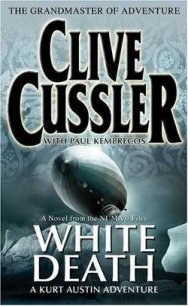The Whispering Land - Durrell Gerald (читать книги .TXT) 📗
In the days when Darwin had visited this area there had still been the remnants of the Patagonian Indian tribes left, fighting a losing battle against extermination by the settlers and soldiers. These Indians were described as being uncouth and uncivilised and generally lacking in any quality that would qualify them for* a little Christian charity. So they vanished, like so many animal species when they come into contact with the beneficial influences of civilisation, and no one, apparently, mourned their going. In various museums up and down Argentina you can see a few remains of their crafts (spears, arrows, and so on) and inevitably a large and rather gloomy picture purporting to depict the more unpleasant side of the Indians' character, their lechery. In every one of these pictures there was shown a group of longhaired, wild-looking Indians on prancing wild steeds, and the leader of the troupe inevitably had clasped across his saddle a white woman in a diaphanous garment,* whose mammary development* would give any modern film star pause for thought. In every museum the picture was almost the same, varying only in the number of Indians shown, and the chest expansion of their victim. Fascinating though these pictures were, the thing that puzzled me was that there was never a companion piece* to show a group of civilised white men galloping off with a voluptuous Indian girl, and yet this had happened as frequently (if not more frequently) than the rape of white women. It was a curious and interesting sidelight on history. But nevertheless these spirited but badly-painted portraits of abduction had one interesting feature. They were obviously out to give* the worst possible impression of the Indians, and yet all they succeeded in doing was impressing you with a wild and rather beautiful people, and filling you with a pang of sorrow that they were no longer in existence. So, when we got down into Patagonia, I searched eagerly for relics of these Indians, and questioned everyone for stories about them. The stories, unfortunately, were much of a muchness* and told me little, but when it came to relics, it turned out, I could not have gone to a better place than the penguin metropolis.
One evening, when we had returned to the estancia after a hard day's filming and were drinking mate* round the fire, I asked Senor Huichi – via* Marie – if there had been many Indian tribes living in those parts. I phrased my questions delicately, for I had been told that Huichi had Indian blood in him, and I was not sure whether this was a thing he was proud of or not. He smiled his slow and gentle smile, and said that on and around his estancias had been one of the largest concentrations of Indians in Patagonia, in fact, he went on, the place where the penguins lived still yielded evidence of their existence. What sort of evidence, I asked eagerly. Huichi smiled again, and, getting to his feet he disappeared into his darkened bedroom. I heard him pull a box out from under his bed, and he returned carrying it in his hands and placed it on the table. He removed the lid and tipped the contents out on to the white tablecloth, and I gasped.
I had seen, as I say, various relics in the museums but nothing to compare with this; for Huichi tumbled out on to the table a rainbow-coloured heap of stone objects that were breath-taking* in their colouring and beauty. There were arrowheads ranging from delicate, fragile-looking ones the size of your little fingernail, to ones the size of an egg. There were spoons made by slicing in half and carefully filing down big sea-shells; there were long, curved stone scoops for removing the edible molluscs from their shells; there were spearheads with razor-sharp edges; there were the balls for the boleadoras,* round as billiard-balls, with a shallow trough running round their equators, as it were, which took the thong from which they hung; these were so incredibly perfect that one could hardly believe that such precision could be achieved without a machine. Then there were the purely decorative articles: the shells neatly pierced for ear-rings, the necklace made of beautifully matched green, milky stone rather like jade, the seal-bone that had been chipped and carved into a knife that was obviously more ornamental than useful. The pattern on it was simple arrangements of lines, but carved with great precision.
I sat poring over these objects delightedly. Some of the arrowheads were so small it seemed impossible that anyone could create them by crude chipping, but hold them up to the light and you could see where the delicate wafers of stone had been chipped away. What was more incredible still was that each of these arrowheads, however small, had a minutely serrated edge to give it a bite and sharpness. As I was examining the articles I was suddenly struck by their colouring. On the beaches near the penguins almost all the stones were brown or black; to find attractively coloured ones you had to search. And yet every arrowhead, however small, every spearhead, in fact every piece of stone that had been used had, obviously been picked for its beauty. I arranged all the spear- and arrowheads in rows on the tablecloth, and they lay there gleaming like the delicate leaves from some fabulous tree. There wore red ones with a darker vein of red, like dried blood; there were green ones covered with a fine tracery of white; there were blue-white ones, like mother-of-pearl; and yellow and white ones covered with a freckling of blurred patterns in blue or black where the earth's juices had stained the stone. Each piece was a work of art, beautifully shaped, carefully and minutely chipped, edged and polished, constructed out of the most beautiful piece of stone the maker could find. You could see they had been made with love. And these, I reminded myself, were made by the barbarous, uncouth, savage and utterly uncivilised Indians for whose passing* no one appeared to be sorry.
Huichi seemed delighted that I should display such obvious interest and admiration for his relics, and he went back into the bedroom and unearthed another box. This one contained an extraordinary weapon carved from stone: it was like a small dumb-bell. The central shaft, which connected the two great, misshapen balls of stone fitted easily into the palm of your hand, so that then you had a great ball of stone above and below your fist. As the whole thing weighed about three pounds it was a fearsome weapon, capable of splitting a man's skull like a puffball. The next item in the box – which Huichi reverently unwrapped from a sheet of tissue paper – looked as though, in fact, it had been treated with this stone club. It was an Indian skull, white as ivory, with a great splinter-edged gaping hole across the top of the cranium.
Huichi explained that over the years, whenever his work had taken him to the corner of the estancia where the penguins lived, he had searched for Indian relics. He said that the Indians had apparently used that area very extensively, for what particular purpose no one was quite sure. His theory was that they had used the great flat area where the penguins now nested as a sort of arena, where the young men of the tribe practised shooting with bow and arrow, spear-throwing, and the art of entangling their quarry's legs with the boleadoras. On the other side of the great sand-dunes, he said, were to be found huge piles of empty sea-shells. I had noticed these great, white heaps of shells, some covering an area of a quarter of an acre and about three feet thick, but I had been so engrossed in my filming of the penguins that I had only given them a passing thought. Huichi's theory was that this had been a sort of holiday resort as it were, the Margate* of the Indians. They had come down there to feed on the succulent and plentiful shellfish, to find stones on the shingle beach from which to make their weapons, and a nice flat area on which to practise with these weapons. What other reason would there be for finding these great piles of empty shells, and, scattered over the sand-dunes and shingle patches, such a host of arrow- and spearheads, broken necklaces and the occasional crushed skull? I must say Huichi's idea seemed to me to be a sensible one, though I suppose a professional archaeologist would have found some method of disproving it. I was horrified at the thought of the number of delicate and lovely arrowheads that must have been splintered and crushed beneath the Land-Rover wheels as we had gaily driven to and fro over the penguin town. I resolved that the next day, when we had finished filming, we would search for arrowheads.



